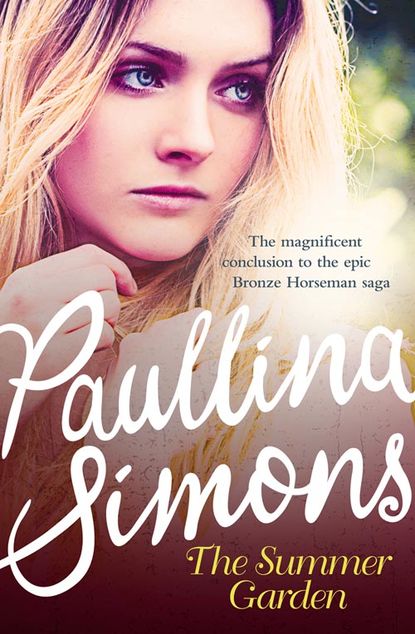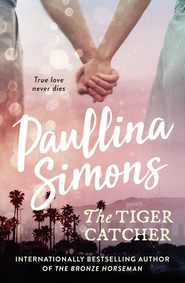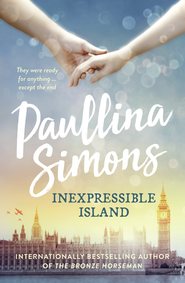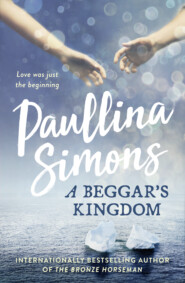По всем вопросам обращайтесь на: info@litportal.ru
(©) 2003-2025.
✖
The Summer Garden
Настройки чтения
Размер шрифта
Высота строк
Поля
On Thanksgiving, Rosa and Esther talked about having Anthony baptized. “Alexander, talk some sense into your wife. You don’t want your son to be a heathen like Tania.” It was after a magnificent dinner during which Tania gave thanks to Aunt Esther, and they were sitting late in the deep evening, with mulled apple cider in front of a roaring fire. Anthony had been long bathed and fussed over and adored and put to sleep. Tatiana was feeling sleepy and contented, pressed against Alexander’s sweatered arm. It reminded her throbbingly of another time in her life, sitting next to him, like this, in front of a flickering small stove called the bourzhuika, feeling calmed by his presence despite the apocalyptic things going on just steps from her in her own room, in her own apartment, in her own city, in her own country. And yet, she sat like this with him and for a fleeting minute was comforted.
“Tania is not a heathen,” Alexander said to Esther. “She was dunked into the River Luga promptly after birth by Russian women so old they looked as if they lived in the times of Christ. They took her from her mother, babynapped her, you might say, and muttered over her for three hours, summoning the love of Christ and the Holy Spirit onto her. Tania’s mother never spoke to the old women again.”
“Or to me,” said Tatiana.
“Tania, is this true?”
“Alexander is teasing, Esther. Don’t listen to him.”
“That’s not what she asked, Tatia. She asked if it was true.” His eyes were twinkling.
He was teasing! She kissed his arm, putting her face back against his sweater. “Esther, you mustn’t fret about Anthony. He is baptized.”
“He is?” said Esther.
“He is?” said Alexander with surprise.
“He is,” Tatiana said quietly. “They baptized all the children at Ellis Island because so many of them used to get sick and die. They had a chapel, and even found me a Catholic priest.”
“A Catholic priest!” Catholic Rosa and Protestant Esther raised their hands to the heavens in a loud interjection, one happy, one slightly less so. “Why Catholic? Why not even Russian Orthodox, like you?”
“I wanted Anthony,” Tatiana said timidly, looking away from Alexander’s gaze, “to be like his father.”
And that night in their bed, all three of them, Alexander didn’t go to sleep, lightly keeping his hand on her. She felt him awake behind her. “What, darling?” she whispered. “What do you need? Ant’s here.”
“Don’t I know it,” he whispered back. “But no, no. Tell me …” his voice was halting, “was he … very small when he was born?”
“I don’t know …” she replied in a constricted voice. “I had him a month early. He was quite little. Black-haired. I don’t really remember. I was in a fever. I had TB, pneumonia. They gave me extreme unction, I was so sick.” She clenched her fists to her chest, but groaned anyway. And so alone.
Alexander told her he couldn’t stay in wintry Barrington any longer, couldn’t do snow, winters, cold. “Never again—not for one more day.” He wanted to go swimming for Christmas.
Whatever Anthony’s father wanted, Anthony’s father got. The sun still rises and sets on you, husband, she whispered to him.
Sets mainly, he whispered back.
They said a grateful goodbye to Esther and Rosa, and drove down past New York.
“Aren’t we stopping to see Vikki?”
“We’re not,” Tatiana said. “Vikki always goes to visit her mentally ill mother in California during Christmas. It’s her penance. Besides, it’s too cold. You said you wanted to go swimming. We’ll catch her in the summer.”
They drove through New Jersey and Maryland.
They were passing Washington DC when Alexander said, “Want to stop and say hello to your friend Sam?”
Startled she said, “No! Why would you say that?”
He seemed pretty startled by that. “Why are you getting defensive? I asked if you wanted to stop and say hello. Why are you talking to me as if I asked you to wash his car?”
Tatiana tried to relax.
Thank goodness he dropped it. In the past, he never used to drop anything until he got his answer.
Virginia, still in the thirties, too cold.
North Carolina, in the high forties, cold.
South Carolina in the fifties. Better.
They stayed in cheap motels and had hot showers.
Georgia in the sixties. Not good enough.
St. Augustine in Florida was in the seventies! on the warm ocean. St. Augustine, the oldest city in the United States, had red Spanish tile roofs and was selling ice cream as if it were summer.
They visited the site of Ponce De Leon’s Fountain of Youth, and bought a little immortal water, conveniently in bottled form.
“You know it’s just tap water, don’t you?” Alexander said to her, as she took a drink from it.
“I know,” Tatiana said, passing him the bottle. “But you have to believe in something.”
“It’s not tap water I believe in,” Alexander said, drinking half of it down.
They celebrated Christmas in St. Augustine. Christmas Day they went to a deserted white beach. “Now this is what I call the dead of winter,” said Alexander, diving into the ocean water in swimming shorts and a T-shirt. There was no one around him but his son and wife.
Anthony, who didn’t know how to swim, waded at the edge of the water, dug holes that looked like craters, collected seashells, got burned, and with his shoulders red and his hair sandy, skipped on the beach, singing, holding a long stick in one hand, and a rock in the other, moving his arms up and down to the rhythmic beat of the tune while his mother and father watched him from the water.
“Mr. Sun/ Sun/ Mr. Golden Sun/ please shine down on/ please shine down on/ please shine down on me …”
After weeks in St. Augustine, they drove south down the coast.
CHAPTER TWO (#ulink_d2d8a103-f642-5b43-8b85-f954d3806fb7)
Coconut Grove, 1947 (#ulink_d2d8a103-f642-5b43-8b85-f954d3806fb7)
The Vanishing
Miami in January! Tropics by the sea. It was eighty degrees and the water was seventy-five. “Better,” said Alexander, smiling. “Much better. Now we stay.”
Sprawled near the calm aqua waves of the Atlantic and Biscayne Bay, Miami Beach and South Beach were a little too … grown up for them with a small boy, with the rampant gambling casinos, the made-up, dressed-up women walking the streets, and the fanned, darkened 1930s Art Deco hotels on the ocean that looked as if men with mortal secrets lived there. Perhaps such hotels were rightful places for the Tatianas and Alexanders of this world—but she couldn’t tell him that. She used Anthony’s moral well-being as her excuse to leave. From South Beach, they drove twelve miles south to Coconut Grove, where it was calmer and neater. Cocoanut Grove, as it was called before the roads and the trains and the tourist trade came in 1896, was just a little town on Biscayne Bay with twenty-eight smart elegant buildings, two large stores doing whopping business, and a luxury hotel. That was then. Now the prosperity was like the sunshine—abundant and unabated. Now there were parks and beaches, marinas, restaurants and stores galore, all etched on the water under the fanning palms.
They stayed at a motel court inland but every day kept drifting out to the bay. Tatiana was worried about the money running through their fingers. She suggested selling the camper. “We can’t stay in it anyway. You need to wash—”
“I’ll wash in the ocean.”
“I need somewhere to cook your food.”
“We’ll eat out.”











